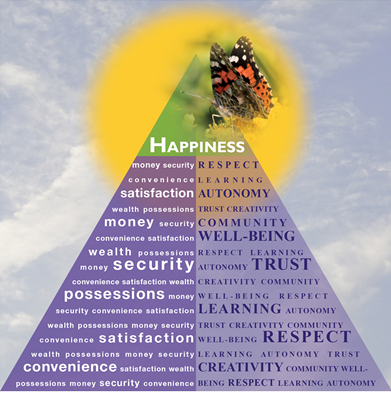 How do you find contentment in an acquisitive society? By changing the things you spend your money on, says a US academic link to read more
How do you find contentment in an acquisitive society? By changing the things you spend your money on, says a US academic link to read more
Source: The Independent
Image: istockphoto
Happiness
There may be a literal truth underlying the common-sense intuition that happiness and sadness are contagious.
A new study on the spread of emotions through social networks shows that these feelings circulate in patterns analogous to what’s seen from epidemiological models of disease.
Earlier studies raised the possibility, but had not mapped social networks against actual disease models.
“This is the first time this contagion has been measured in the way we think about traditional infectious disease,” said biophysicist Alison Hill of Harvard University.
Read More : Wired Science
A worldwide survey of more than 136,000 people in 132 countries included questions about happiness and income, and the results reveal that while life satisfaction usually rises with income, positive feelings don’t necessarily follow, researchers report.
The findings, from an analysis of data gathered in the first Gallup World Poll, appear this month in the Journal of Personality and Social Psychology.
“The public always wonders: Does money make you happy?” said University of Illinois professor emeritus of psychology Ed Diener, a senior scientist with the Gallup Organization. “This study shows that it all depends on how you define happiness, because if you look at life satisfaction, how you evaluate your life as a whole, you see a pretty strong correlation around the world between income and happiness,” he said. “On the other hand it’s pretty shocking how small the correlation is with positive feelings and enjoying yourself.” [continue reading…]
Gretchen Rubin author of The Happiness Project
at bigthink Happiness begins with concrete, manageable steps. But it must take on a more transcendent aspect as well.
Source: bigthink


